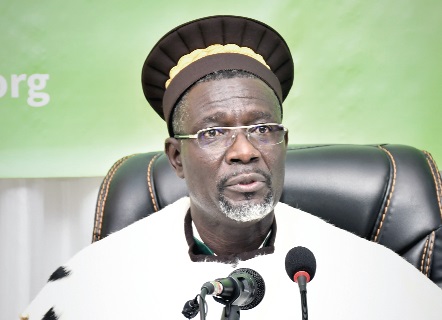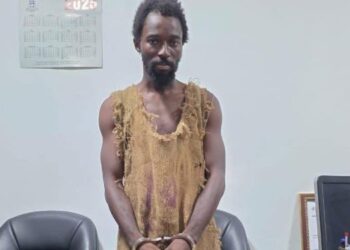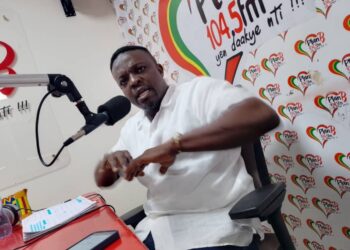The ECOWAS Community Court of Justice (CCJ) will hold an external session in Ghana from March 21 to April 1, this year as part of efforts to bring the court closer to Ghanaians.
The external court session will be held at the Law Court Complex, Accra, with the five Justices of the CCJ hearing 60 cases, one pertaining to Ghana and 25 due for judgements.
The President of the CCJ, Justice Edward Amoako Asante, told the Daily Graphic that external court sessions had been regular features of the CCJ since 2007, adding that they allowed the court to move from its seat of operations in Abuja, Nigeria to any of the 15 member states to adjudicate on cases.
He said the external court sessions were in compliance with Article 26 (2) of the ECOWAS protocol establishing the CCJ, which permitted the court to hear cases in any territory of ECOWAS member states “where circumstances or facts of the case so demand”.
What’s the CCJ?
The CCJ is the principal legal arm of ECOWAS, clothed with the mandate to provide relief for citizens of the 15 ECOWAS member states whose human rights, as enshrined in the ECOWAS Treaty, protocols and other international conventions, have been violated by their countries.
It also has jurisdiction to interpret the ECOWAS Treaty and protocols, resolve disputes between member states and any institution of ECOWAS, as well as disputes between member states in relation to the application of the ECOWAS Treaty and protocols.
Rationale
Justice Asante explained that the CCJ was a court for all citizens of ECOWAS and, therefore, there was the need to make it more accessible to all people within the West African subregion.
“There are so many citizens of ECOWAS countries who may want to access the court but do not have the means of travelling all the way to Abuja, lodging in hotels to attend court. The court, therefore, deems it fit to sit in chosen member states,” he said.
He also said the external sessions were avenues for the CCJ to create awareness of its activities among the public.
He said as one of the cardinal institutions of ECOWAS, the CCJ had a crucial role in deepening the integration agenda of ECOWAS and, therefore, it was important for people to appreciate and understand the functions of the court.
“The visibility of the court must be felt. Many people, including lawyers, do not know about the court, its functions, mandate and procedures, or even its existence. The court is owned by all of us and, therefore, everybody must benefit from it,” he added.
Functions and mandate
Justice Asante said the CCJ was an international court, with its jurisdiction clearly defined by the ECOWAS revised treaty and protocols.
He explained that initially, the court only had the mandate to interpret the ECOWAS Treaty and protocols, as well as resolve disputes between member states or member states and institutions of ECOWAS in relation to the application of the treaty and protocols.
In view of that, only member states and ECOWAS institutions had capacity to initiate actions before the court, he said.
The jurisdiction of the court, he indicated, was expanded in 2005 to include hearing of alleged human rights violations by member states against their citizens, with individuals having the capacity to file cases before the court.
“Individuals can now come to the court to vindicate their rights. About 95 per cent of the cases before the court are in respect of human rights violations within member states against community citizens,” he said.
He, however, stressed that the CCJ was not mandated to hear appeals against decisions of courts in member states.
According to him, a person seeking redress from the CCJ must initiate the case at the CCJ, but must ensure that the same action was not before a national court in a member state.
“The CCJ is not an appellate court over decisions of national courts. This court entertains actions brought afresh. The aggrieved person has the option of coming to the ECOWAS Court or going to the national court,” he said.
He said the CCJ could entertain cases which had been determined by national courts only in instances when the right to fair trial had been violated but said the court would only limit itself to the alleged violation and not the merits of the case.
Challenges
In terms of challenges, Justice Asante said member states rarely filed cases at the court for the interpretation of ECOWAS protocols or resolution of disputes in relation to the protocols.
ECOWAS, he said, had protocols on free movement, standard tariffs, among others, with the CCJ as the arbiter in ECOWAS integration.
For instance, he said he was surprised some countries did not file a case at the court when Nigeria, not long ago, decided to close its land border to goods and people from the subregion.
“This is an issue of the free movement of goods and persons, but, surprisingly, no matter was brought, even though the court had jurisdiction in such a matter,” he added.
Another challenge, he said, was the enforcement of the decisions of the court.










Discussion about this post